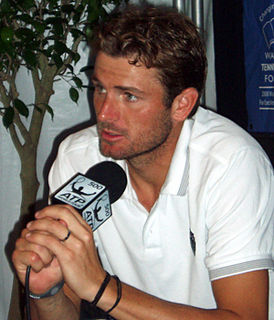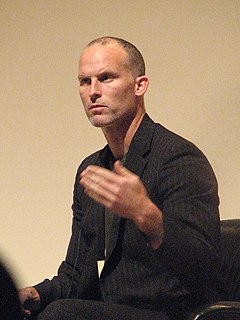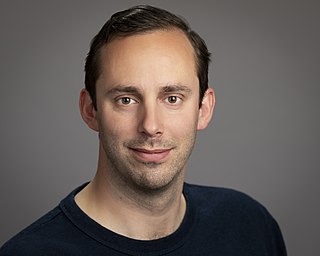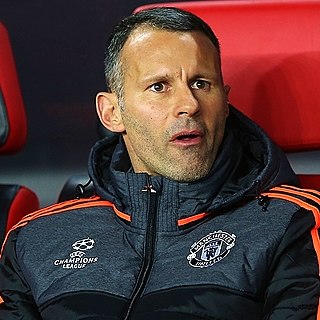A Quote by Michael Pitt
'Boardwalk' begins literally on the first day of Prohibition, which I think was a wonderful way to start - to have the story kind of come out of this massive historical phenomenon. And the more I researched the '20s, the more I discovered just how interesting it was.
Related Quotes
I'm seeing more and more interesting horror come my way. More and more interesting thrillers and genre films are coming my way from the studio level, and they're financed and they have movie stars attached and all of that. But a lot of times, the storytelling just doesn't speak to me. It feels like it's still oftentimes coming out of a kind of prescribed notion of normalcy, prescribed notion of gender roles. There's not a lot of "new" seeming to be happening.
People need fewer 'ought-to' sermons, and more 'how-to' sermons. The deepest kind of teaching is that which makes a difference in people's day-to-day lives. Jesus spoke to the crowd with an interesting style. When God's Word is taught in an uninteresting way, people don't just think the pastor is boring, they think God is boring!
It's hard to tell if anyone's interested in reading a serialized story. But it's interesting to put in a cliffhanger each week. That was popular in old comic strips. They'd write a weekend story different from the daily strip. So people follow one story day to day, and a separate story on weekends. If you read them, you think "I'll read two more." Then you're like "I gotta find out!" And you read 500 more.
The laws governing the universe can be made interesting and wonderful to the child, more interesting even that things in themselves, and he begins to ask: What am I? What is the task of man in this wonderful universe? Do we merely live here for ourselves, or is there something more for us to do? Why do we struggle and fight? What is good and evil? Where will it all end?
I don't really think I have the personality. I am not very external. I don't want to dance on the table and do impressions. So I think that the way I approach it is really loving story. That's my first love - the words. The words and the story and how to create images. I guess I come at that as a director. I think that's much more in my personality to be a director, so that's kind of informed my acting.
I've read something that Bill Gates said about six months ago. He said, ‘I worked really, really hard in my 20s.’ And I know what he means, because I worked really, really hard in my 20s too. Literally, you know, 7 days a week, a lot of hours every day. And it actually is a wonderful thing to do, because you can get a lot done. But you can't do it forever, and you don't want to do it forever, and you have to come up with ways of figuring out what the most important things are and working with other people even more.
We want to do things that are interesting, great storytelling, some of it is gonna be more fun and funny, some of it is more serious and talking about interesting issues that we think are provocative and interesting to us. Kind of on a more political level. But, you know, just things that we find interesting that we think stories that need to be told.
It's kind of like being a writer in the sense that you always hear other writers say, 'Well, the best way to start writing is to just start writing.' The same goes for improvisation. You want to start improvising, just start playing notes. And the more you do that, the more comfortable - or not comfortable - but I guess how you're able to adapt to situations. You become more familiar with your instrument. As soon as you have a musical thought, you can go ahead and add to that musical thought and know your way around.
As the day goes on you get more and more tired. Even if people say they're afternoon people or evening people, it's always best to start out first thing in the morning with your most important task as opposed to your email, phone calls, or checking the internet. If you start out with that then basically you'll just do that all day long.
In my career, there've been three stages really. There's been the stage when you come into a team, you don't feel the nerves, you just go out and play. Then through your 20s you start thinking a lot more about the games and what's at stake. And then, as you get more experienced towards the end of your career, you enjoy it a lot more and you're a lot more relaxed.




































